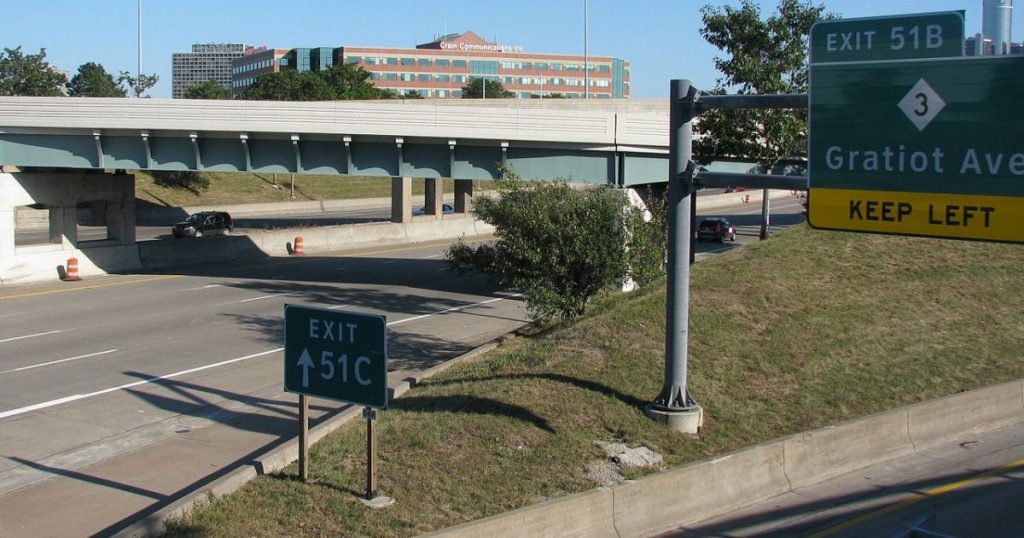Detroit Today: Reckoning with the construction and rebuild of I-375
“Reckoning 375,” a new miniseries from “Detroit Today,” will explore the history behind — and repercussions of — the freeway’s construction, and what the replacement project will entail.

Northern end of Interstate 375 where it merges into Interstate 75 in Detroit. Through the I-375 Reconnecting Communities Project, MDOT plans to convert the freeway to a street-level boulevard.
In the early 1960s, I-375 was created. That highway, and highways like it, allowed people to more quickly maneuver the city and get to the further-away suburbs. But the creation of I-375 didn’t produce net benefits, and many claim they were particularly harmful for the Black Detroit residents who lived in — and were removed from — the area in which I-375 now sits.
Now, the opportunity to rectify a wrong is presenting itself. The Michigan Department of Transportation is in charge of replacing I-375 with a six-lane boulevard in a program called the I-375 Reconnecting Communities Project. But will this project actually be reparative? Will it help the people who lived in Black Bottom or those who were somehow connected to that area?
In a new Detroit Today miniseries titled Reckoning 375, the show will be exploring the ways in which a community was destroyed, what the plans for a rebuild are, and whether the state can do something to make the people removed from Black Bottom and Paradise Valley, whole.
In the first episode, Detroit Today’s producer and co-host Nick Austin spoke with a number of people who grew up in Black Bottom or whose parents lived there.
Subscribe to Detroit Today on Apple Podcasts, Spotify, Google Podcasts, NPR.org or wherever you get your podcasts.
Guests:
Bert Dearing, Jr. is the owner of Bert’s Marketplace in Detroit’s Eastern Market. He says he enjoyed his childhood growing up in Black Bottom.
“As a kid, I used to walk up and down Hasting Street, selling fresh fish on the stream or whatever and you got a quarter from the string of fish that you sold,” Dearing said.
Marsha Music’s father owned a record store on Hastings Street, a main road in Black Bottom. The store had been relocated due to the construction of I-375. She says the move dramatically impacted both her father’s business and his personal life.
“He had been an extremely successful entrepreneur on Hastings Street,” says Music. “He was really a center of a lot of musical threads in individuals that would come through there.”
Gloria Hopkins is a former resident of Black Bottom. She says many people do not know the origins of the name Black Bottom, and that it was due to the rich soil of the land on which the neighborhood sat.
“We had two peach trees in our backyards. Many of the neighbors had pear trees with cherry trees and we also had two apricot trees,” says Gloria. “During that era, everybody shared whatever you had and if someone didn’t have it we would share as a matter of fact.”
Trusted, accurate, up-to-date.
WDET strives to make our journalism accessible to everyone. As a public media institution, we maintain our journalistic integrity through independent support from readers like you. If you value WDET as your source of news, music and conversation, please make a gift today.
